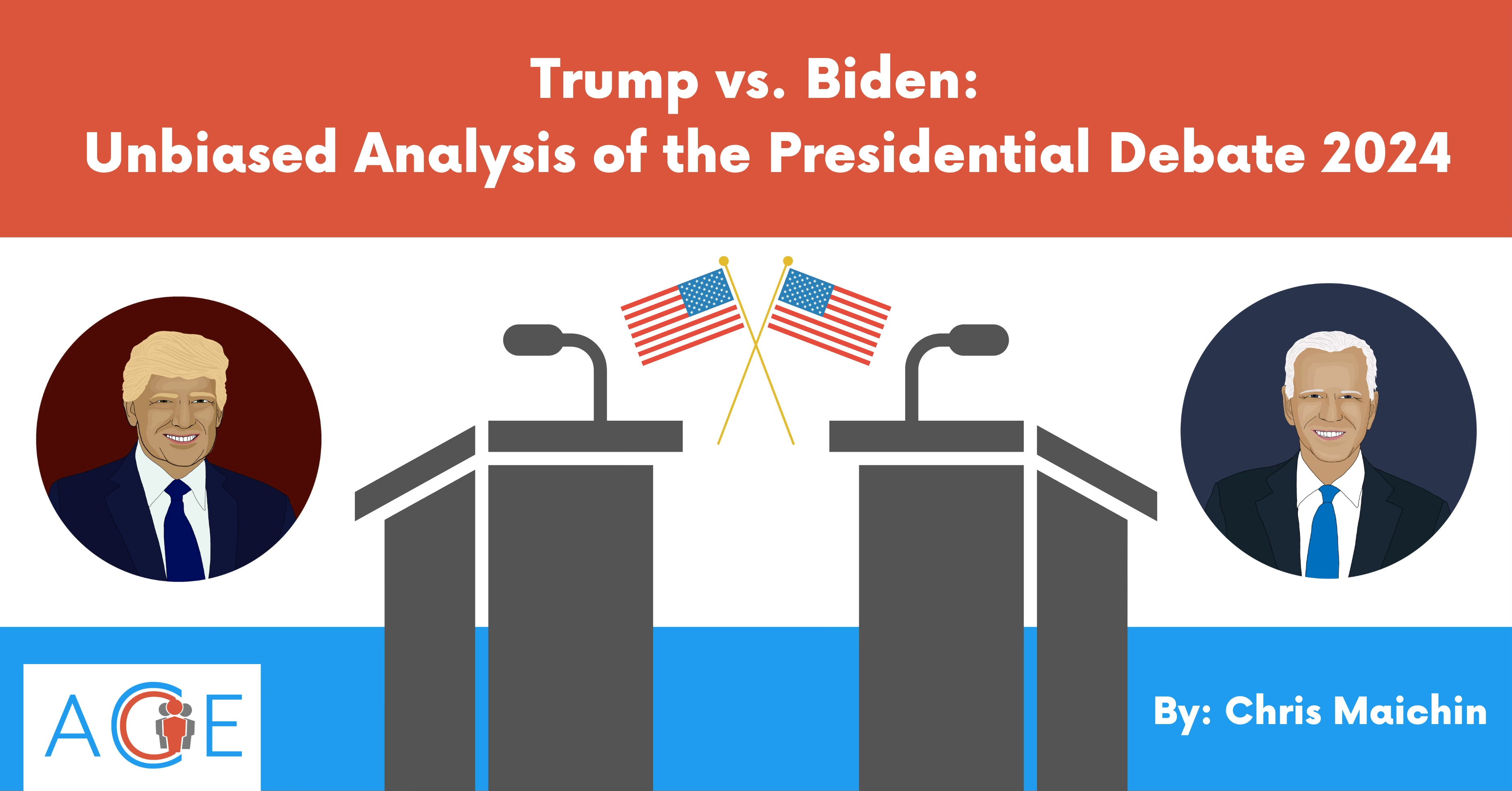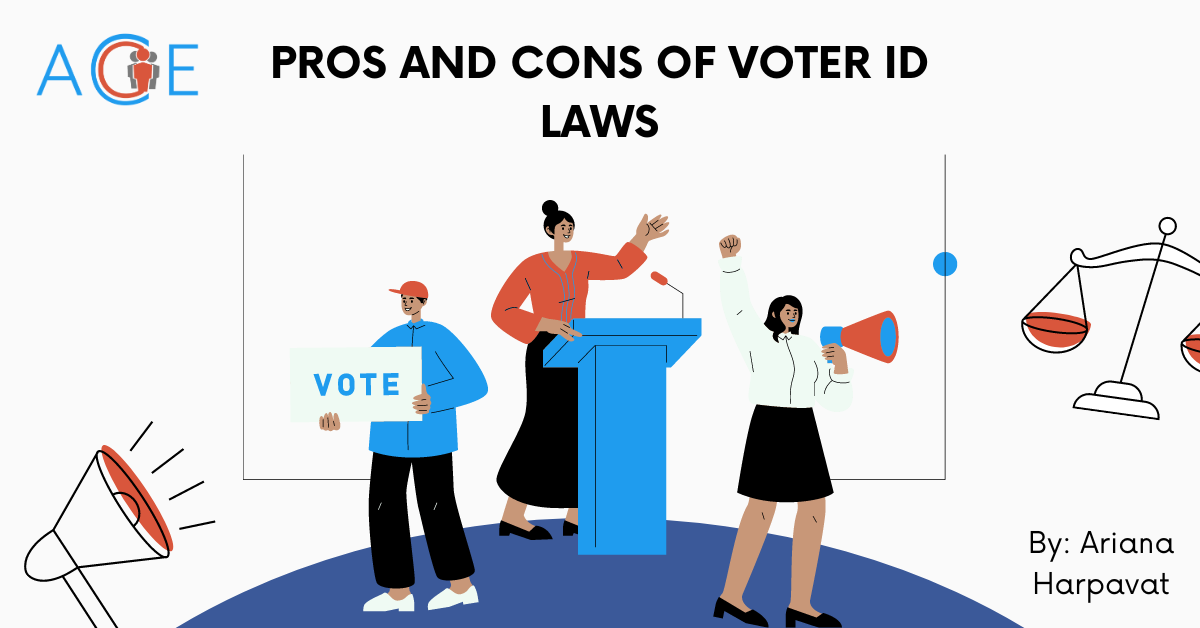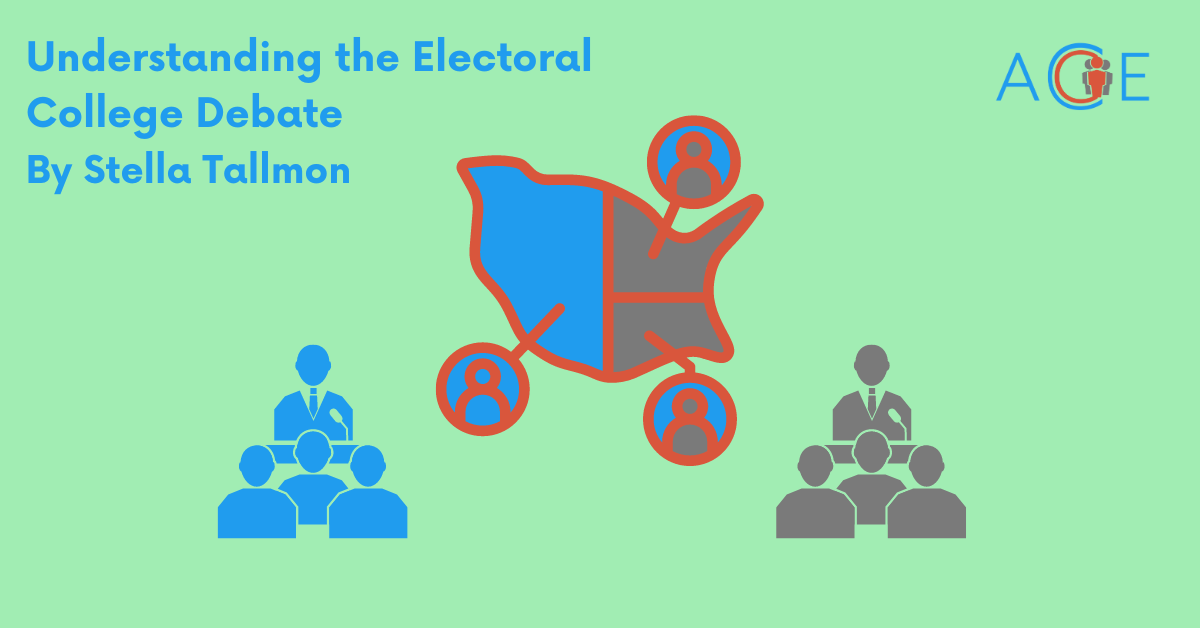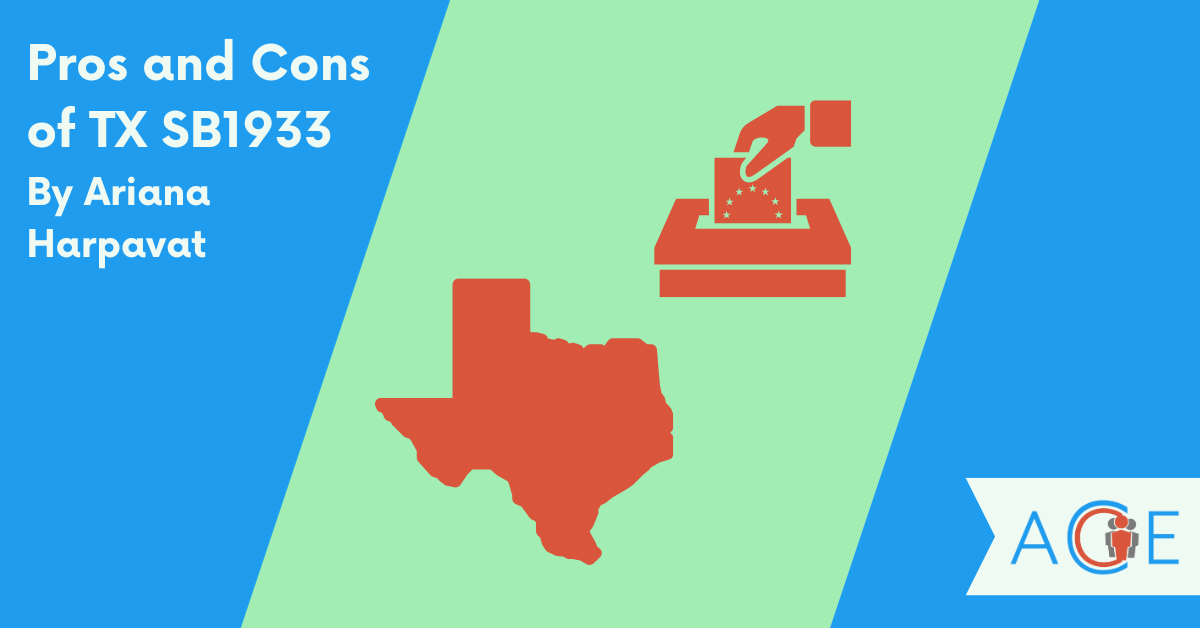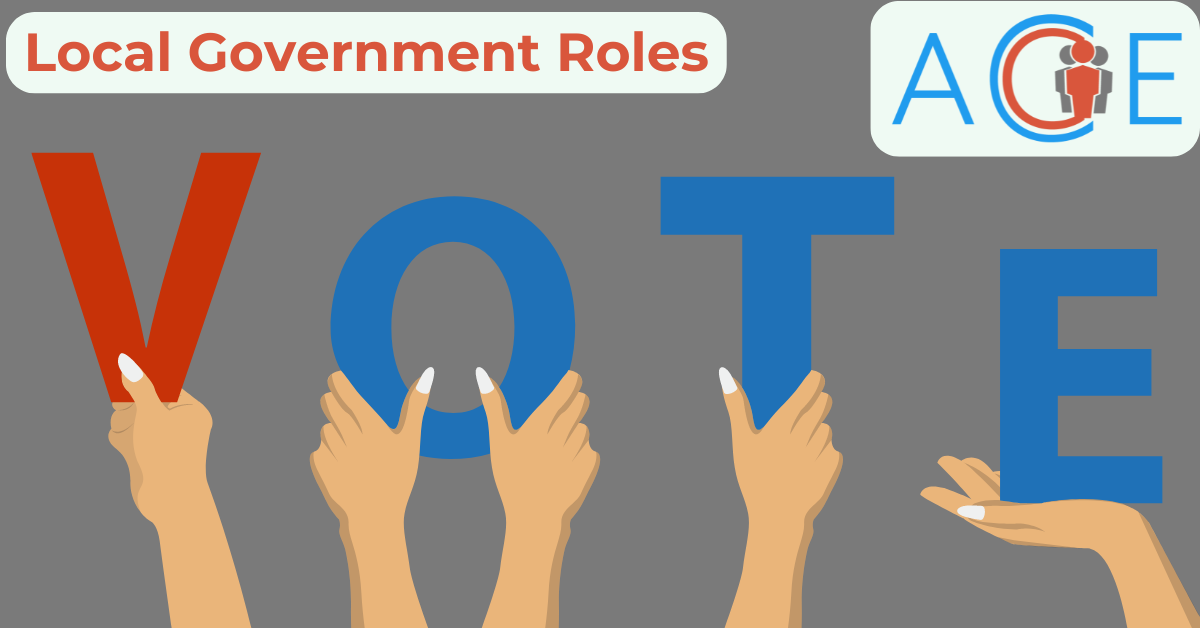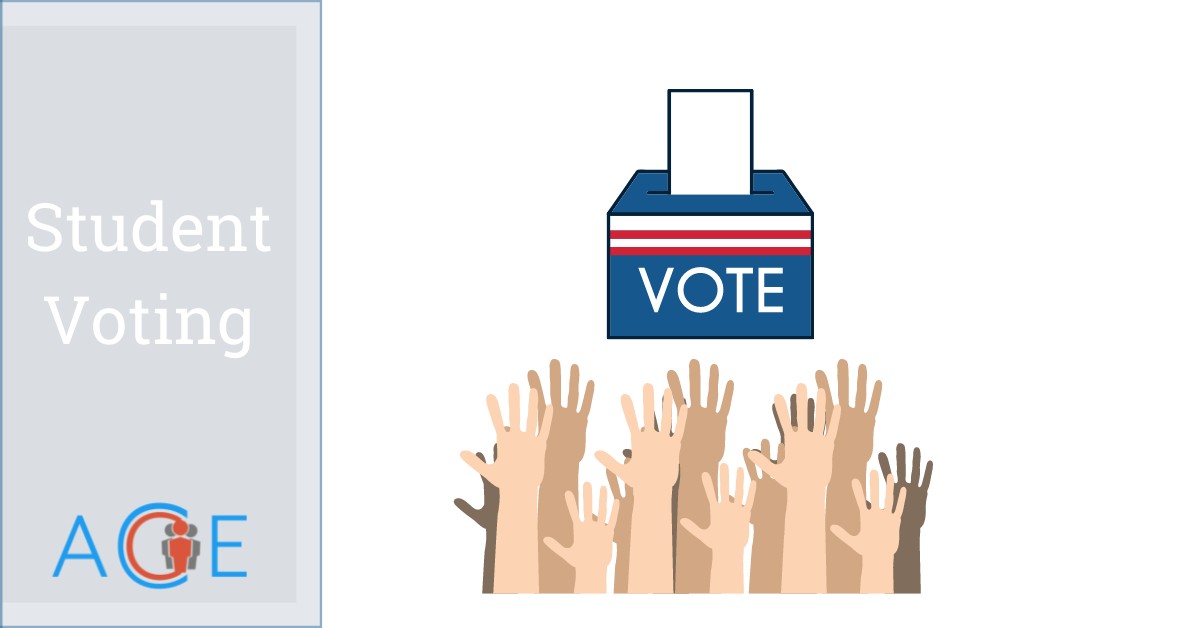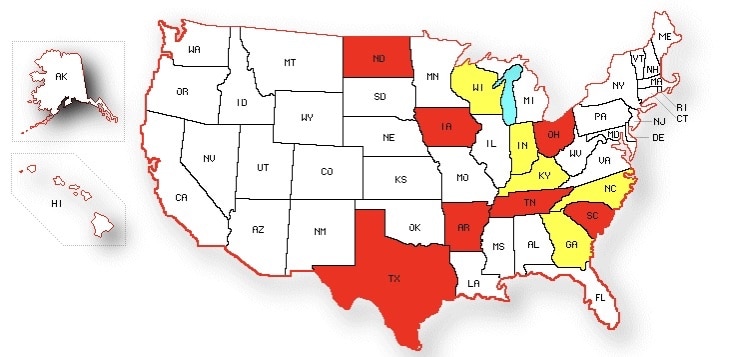Updated July 3, 2024: With Highlights from Independent Candidate Robert F. Kennedy Jr.’s “The Real Debate” live-streamed by Elon Musk on X
For the first time in 1,336 days, President Joe Biden and Former President Donald Trump faced off in the inaugural debate of the 2024 presidential election cycle. This historic event marks the first instance of a sitting president and a former president competing head-to-head in a presidential debate, promising a night filled with intrigue and high drama. Voters now have a rare and unprecedented opportunity to directly compare two administrations they have lived under, evaluating whether they prefer to continue with the current leadership or return to the policies and life of four years ago.
Adding to the unconventional nature of this debate, it was not hosted by the Commission on Presidential Debates, featured no audience, and included muted microphones when it was not a candidate’s turn to speak. This format ensured that the focus remained on the candidates’ policies and responses, offering a clearer, more controlled comparison for the voters. The stakes are incredibly high, as this debate provides a critical platform for each candidate to outline their vision for the future and persuade the electorate of their capability to lead the nation.
While he did not meet CNN’s requirements to be on the debate stage, Independent candidate Robert F. Kennedy Jr. held “The Real Debate” live-streamed by Elon Musk on X. The debate featured a simulcast of CNN’s Presidential Debate with periodic pauses after Trump and Biden’s statements for Kennedy to answer.
Before the debate began, FiveThirtyEight conducted a poll on voters’ views of the candidates and issues. In terms of favorability, Trump entered the debate with a 2-point lead over Biden 40.6% to 38.4%. RFK Jr. entered the night with a favorability average of 32.7%.
The most pressing issues on voters’ minds were:
50% Inflation and Rising Costs
37% Immigration
25% Political Extremism/Polarization
19% Abortion
18% Crime or Gun Violence
17% Government Budget and Debt
16% Climate Change and Environment
15% Foreign Conflicts or Terrorism
The stage was set, the candidates were ready, and here’s what happened:
Economy
Jake Tapper and Dana Bash immediately began the debate with questions on the economy. The first question was directed at President Biden, asking him to respond to the pain many Americans feel from inflation and rising costs. Biden quickly blamed Trump for leaving him with an economy “in freefall” that he was tasked with fixing. He highlighted actions his administration has taken, such as reducing the price of insulin, and Trump’s focus on supporting the ultra-rich.
Trump rebutted by claiming his administration had the greatest economy in history while blaming Biden for rising inflation. Throughout the night, Trump frequently referred to his Tax Cuts and Jobs Act, asserting that it was highly beneficial. In contrast, Biden argued that it hurt more Americans than it helped. The same disagreement extended to Trump’s plan for a 10% tariff on all imports.
“We had an economy that was in freefall,” Trump stated “The pandemic was so badly handled. What we had to try to do was put things back together again, and that’s exactly what we began to do.” He continued, saying, “Inflation is killing our country; it is absolutely killing us.”
Trump also boasted, “Nobody ever cut taxes like us. He’s the only one I know who wants to raise your taxes by four times. He wants to let the Trump tax cuts expire. So everybody, including the two of you, will pay four to five times more. All my life, I’ve seen politicians talking about cutting taxes. When we cut taxes, we did more business. Apple and all these companies were bringing money back into our country.”
Biden responded, “Look, the fact of the matter is that he’s dead wrong. He increased taxes. He will increase the taxes on middle-class people.” Adding “I think not everybody else who thinks they agree he had the greatest economy in the world. And the fact of the matter is that he pride ourselves in a situation where his economy, he rewarded the wealthy.”
In his response, RFK Jr. quickly criticized both the former and current president for their contribution to the increased national debt and deficit, saying they are both responsible for inflation and soaring costs. He called the rising budget an “existential crisis.”
“These two men are the people who ran up the deficit that is causing the inflation,” he stated. “Trump came into office promising to balance the budget; instead, he spent more money in office than every president in United States history combined, from George Washington to George W. Bush—283 years of history. Biden will surpass him. He’s already run up $6.3 trillion in debt, and by the end, he’ll have exceeded Trump’s total. That’s why we have inflation. Inflation is caused because they’re printing money to pay for expenses that we can’t afford.”
RFK Jr. continued, “The interest alone on that debt is costing us more than our military budget. In five years, 50 cents out of every dollar we collect in taxes will go to servicing the debt. Within 10 years, it will be 100 percent. This is existential. This is one of the problems that neither of these two will talk about.”
On the taxation question, RFK Jr. acknowledged that Trump had a strong economy but dismissed its success, saying, “It was a strong economy. Anybody can have a strong economy by borrowing $8 trillion because you’re forcing our children to pay for our present-day prosperity with this enormous debt, which ultimately is paid by the poor and by people with fixed incomes.”
He also used this opportunity to criticize both presidents for their handling of the COVID-19 pandemic and the media’s role during the crisis. “These two presidents shut down every business in our country—3.3 million businesses—with no due process, no just compensation. Forty-one percent of the Black-owned businesses that they closed will never reopen. There was no scientific reason to do this. There was no public hearing. They made a bad mistake, and that was the worst financial mistake in American history. They shifted $4.3 trillion upward to this new oligarchy of billionaires that he was talking about. They created a billionaire a day in 500 days. And one of the problems is that CNN was their biggest cheerleader. The same company, BlackRock, that owns CNN, also owns Pfizer. Pfizer’s the biggest advertiser. They were all in cahoots in telling us what we needed to do, and we ended up having the worst record of a dead body count of any country in the world.”
Abortion
Although over two years have passed since the Supreme Court’s overturning of Roe v. Wade, the issue of abortion rights continues to be a key topic in 2024. When asked about the most recent Supreme Court ruling on abortion, Donald Trump agreed with the court’s decision allowing access to abortion pills. He praised his efforts in overturning Roe v. Wade and emphasized his belief in exceptions for rape, incest, and the life of the mother, asserting that states should make their own laws on this issue. According to Trump, states are currently “working it out.”
Biden repeatedly attacked Trump on his positions regarding abortion, staunchly supporting the re-establishment of Roe v. Wade protections at the federal level.
“Fifty-one years ago you had Roe v. Wade and everybody wanted to get it back to the states, everybody,” Trump stated. “Texas is different, Florida is different, but they’re all making their own decisions right now. And right now, the states control it. That’s the vote of the people. Like Ronald Reagan, I believe in the exceptions.”
Biden countered, “It’s just ridiculous. And this is the guy who says the states should be able to have it. We’re in a state where it’s six weeks. You don’t even know whether you’re pregnant or not, but you cannot see a doctor and have him decide on what your circumstances are with your need for help.”
He continued, “The idea that states are able to do this is a little like saying, we’re going to turn civil rights back to the states, but each state will have a different role.”
When asked about his position on Roe v. Wade, RFK Jr. immediately voiced his continued advocacy for “bodily autonomy.” “Well, I’ve spent probably more energy protecting medical freedom and bodily autonomy than any other leader in this country,” he said.
He acknowledged the role of the states in “increasing viability outside the womb” and laid out his “poor choice, fewer abortions” policy. This policy, he argued, relies on the fact that “52% of the abortions in this country are because the woman says that economic considerations played the key role in her decision. Every abortion is a tragedy. Many women don’t want to have abortions—over half of them—because they do not believe they can care for that child for financial reasons.”
In terms of exceptions, RFK Jr. explained, “Yeah, I believe it should be limited. It’s late-term. It should be limited, absolutely. That’s what was permitted under Roe v. Wade. So every European country has the same law. And that law makes sense. If that baby is fully viable outside of the womb, the state has an absolute interest in protecting it.”
Immigration
On the issue of immigration, the moderators began by asking Biden why they should trust him to handle the crisis, given that “a record number of migrants have illegally crossed the southern border on [his] watch.” Biden touted the bipartisan bill intended to curb the immigration crisis, which ultimately failed to pass the Senate a few months ago. He also emphasized the increased number of border patrol agents deployed to the southern border.
President Trump immediately fired back, claiming he had overseen the “most secure border in history” and criticized Biden for not maintaining it. Trump repeatedly blamed Biden for worsening the crisis by repealing Trump-era policies early in his term, only to reinstate them recently in an attempt to curb the flow of migrants. Trump also emphasized his plan to carry out the largest mass deportation effort in American history.
“We worked very hard to get a bipartisan agreement,” Biden stated. “We significantly increased the number of asylum officers… In addition to that, when he was president, he was separating babies from their mothers, putting them in cages, and ensuring families were separated.”
Trump countered, “He decided to open up our border, open up our country to people from prisons, mental institutions, insane asylums, and terrorists. We are living right now in a rat’s nest. They’re killing our people in New York, California, and every state in the union because we don’t have borders anymore. Every state is now a border.”
He continued, “Because of his ridiculous, insane, and very stupid policies, people are coming in and killing our citizens at a level that we’ve never seen. We call it migrant crime.”
When asked about what he would do about the border, RFK Jr. said, “Well, I would say that on this one, President Trump is more right than President Biden. I think almost everything that President Biden said, I know to be not true, including his claim that he was endorsed by the border patrol.”
He continued by blaming Biden for halting construction of the border wall, allowing illegal aliens to pass through the “gaps.” He criticized Biden for decreasing border security measures, stating, “President Biden ordered the deconstruction of fences, the censoring systems were taken down. I can’t tell you why. The long-distance cameras were taken down. The night lights were taken down. So that with some decision in the administration to open up the border, and then the two laws that were changed under President Biden as soon as the day that he came in.”
RFK Jr. agreed with President Trump that “there’s a lot of bad people coming across,” attributing rising crime rates to the influx of illegal immigrants in the U.S. He then blamed Democrats for creating the border crisis out of “compassion.”
“I think a lot of the Democrats allowed this to happen out of a humanitarian impulse, out of the impulse of compassion,” he said. “But when you’re actually down there and talking to people, it’s not a compassionate solution. The people that I talk to—many of them have been extorted, exploited, robbed, and raped. We have an immigration policy in this country that is now being run by the Sinaloa Drug Cartel. Border patrol [has] been ordered not to do their job. They’re, you know, catch and release. They bring them to the Yuma Airport, put them on a plane to any destination they want. And this is true. It sounds like hyperbole, but it’s not. And they pay their ticket.”
Foreign Policy
Russia/Ukraine
In the foreign policy section of the debate, moderators opened with a question on Putin and the war in Ukraine: “If Russia keeps the Ukrainian territory it has already claimed and Ukraine abandons its bid to join NATO, are Putin’s terms acceptable to you?”
Trump began his response by stating that the military and world leaders respect him far more than they do Biden. He highlighted that Putin did not attempt to take any part of Ukraine during his administration, unlike during the previous and current administrations. Without providing a clear plan for resolving the war, Trump repeatedly claimed that, if elected, he would settle the conflict with Putin and Zelensky before his inauguration. He also used this topic to attack Biden’s handling of the United States’ withdrawal from Afghanistan.
In response, Biden criticized Trump for his lack of support for troops attacked by Iran, who suffered brain damage, noting that Trump had dismissed their injuries as mere “headaches,” stating “Iran attacked American troops, causing brain damage for a number of these troops, and he did nothing about it.” Biden labeled Trump as Putin’s puppet while advocating for continued support of Ukraine and ongoing funding for weapons to help end the war. Trump argued that the U.S. is giving too much money to Ukraine without seeing significant results.
“As far as Russia and Ukraine,” Trump said, “if we had a real president, one that was respected by Putin, he would have never invaded Ukraine. A lot of people are dead right now—much more than people know. You can double or triple the reported numbers. He did nothing to stop it.”
He continued, “I’ll tell you what happened. He was so bad with Afghanistan. It was such a horrible embarrassment—the most embarrassing moment in the history of our country—that when Putin watched that and saw the incompetence, he should have fired those generals like I fired the ones you mentioned.”
Regarding financial support, Trump noted, “He’s given $200 billion. That’s a lot of money. I don’t think there’s ever been anything like it. Every time Zelensky comes to this country, he walks away with $60 billion. He’s the greatest salesman ever. And I’m not knocking him. I’m only saying the money we’re spending on this war—we shouldn’t be spending it. It should have never happened.”
Biden countered, “Putin is a war criminal. He’s killed thousands upon thousands of people. He wants to reestablish what was once the Soviet empire—not just a piece; he wants all of Ukraine. And then you think he’ll stop there? What happens to Poland? To Belarus? To those NATO countries? If you want a war, you ought to find out what he’s going to do because, if he does what he says and walks away, all that money we give Ukraine goes to weapons we make here in the United States to give them the weapons, not the money at this point.”
RFK Jr. was quick to criticize not only Putin for his role in escalating the war in Ukraine but also Biden and Trump. He argued that “Putin has been asking to settle this war from the beginning,” citing the Minsk Accords in 2008 and Zelensky’s promise to sign them when he ran in 2019.
“And really the only thing Putin wanted was to keep NATO out of Ukraine. President Putin did not go into Ukraine intending to conquer Europe. He only sent 40,000 troops. It’s a nation of 44 million people. He didn’t even want to take Ukraine. He wanted us back at the negotiating table,” RFK Jr. said.
He continued, “Zelensky asked the United States to help negotiate a treaty with Putin, and the Biden administration said no. Putin and Zelensky then went to Israel’s former Prime Minister and Turkey’s President Erdogan, who both agreed to help. They negotiated a beautiful treaty in Istanbul in April of 2022 and signed it. The one thing Putin wanted was for NATO to stay out of Ukraine. He didn’t want to conquer Europe. Putin was withdrawing his troops, leaving Donbas and Luhansk. But then President Joe Biden sent Boris Johnson to Kyiv to convince Zelensky to tear up that agreement because they had another agenda—to weaken Russia.”
Turning to Trump, RFK Jr. said, “President Trump was part of it. He gave the first $1.3 billion to Ukraine in 2017 for offensive weapons. He then sent Mike Pompeo over there in 2019 to say that we’re going to put NATO there. And then he unilaterally walked away from the Intermediate-Range Nuclear Forces Treaty with Russia. So the two of them are equally culpable in the provocations that led to this war.”
Addressing the Russian president, Kennedy proclaimed, “I’m not excusing Putin. Putin didn’t need to go into Ukraine, and he should be held responsible too. But we need to look at our responsibility, which falls on the backs of both President Trump and President Biden.”
Israel/Hamas
President Biden was asked about what “additional leverage” could be used to end the war between Israel and Hamas. He outlined a three-point plan, which involves negotiating a ceasefire to release the remaining hostages, followed by a ceasefire with additional conditions, and ultimately ending the war. While the plan appears straightforward, it has yet to be enforced. Biden also highlighted his efforts to weaken Hamas and support Israel’s right to self-defense.
Biden stated, “…plan that put forward…has three stages to it. The first stage is to trade the hostages for a ceasefire. The second phase is a ceasefire with additional conditions. The third phase is the end of the war. The only one who wants the war to continue is Hamas. We’re still pushing hard to get them to accept this.”
He continued, “Hamas cannot be allowed to continue. We continue to send our experts and intelligence people to help Israel combat Hamas. They’ve been greatly weakened and should be eliminated. But we have to be careful using certain weapons in population centers.”
During his response, President Trump diverted the discussion to his concerns with NATO, criticizing member countries for not paying their fair share. He emphasized that Israel needs to finish the job and controversially compared Biden to a Palestinian.
He responded, “Why doesn’t he call them and say you’ve got to put up your money? Like I did with NATO. I got them to put up hundreds of billions of dollars. The Secretary-General of NATO said Trump did the most incredible job he’s ever seen.”
Trump also said, “Israel’s the one that wants to go. He said the only one that wants to keep going is Hamas. Actually, Israel is the one, and you should let them finish the job. He doesn’t want to do it. He’s become like a Palestinian, but they don’t like him because he’s a very bad Palestinian.”
RFK Jr. emphasized the need for more diplomacy regarding the war between Israel and Hamas “from the beginning.” He addressed many of the fundamental differences between the two sides.
“I think we have to recognize a couple of things. One is we’re a nation of compassion. And all of us are heartbroken by seeing the plight that’s happening in Gaza. All of us are affected and horrified by the injuries to the civilians and the damage to the innocent in Gaza. We also have to understand that Israel is in an existential battle now. Hamas is a genocidal organization, pledged to Israel’s annihilation and the extermination of Jews. It does not want a two-state solution; it wants a one-state solution, which is Israel gone. So Israel is in a five-front war with Hamas, which is a proxy of Iran, with the Shiite militias in Iraq and Syria, with Hezbollah—all proxies of Iran. We have to let Israel disarm Hamas. We have to support them. Israel’s our oldest ally and the only democracy in the Middle East. Imagine what the world would be like without Israel for the first time in 80 years.”
He also issued a warning about the power of Iran and suggested a pathway toward a solution.
“Iran is now a superpower in the Middle East and has the capacity to maintain a war and to wipe out Israel. We need to support Israel, but we also need to use diplomacy, and the current administration is not capable of doing that. We need to bring in President Xi, President Putin, and even consider negotiating with Iran. The neocons in the White House see this as a bipolar world where the United States dominates and won’t negotiate with anybody. That is the problem that caused this.”
Democracy
Midway through the debate, the moderators turned to the question of threats to democracy. Trump was asked, “What do you say to voters who believe that you violated that oath through your actions and inaction on January 6, and are worried that you’ll do it again?” Initially, Trump did not answer directly, instead highlighting the strengths of his administration and criticizing Biden’s weaknesses.
Trump stated, “On January 6, we had a great border. Nobody coming through. Very few. On January 6, we were energy independent. On January 6, we had the lowest taxes ever. We had the lowest regulations ever. On January 6, we were respected all over the world. And then he comes in and now we’re left with that.”
When the moderators redirected him, he responded by claiming he had asked protesters to go “peacefully and patriotically” and pointed to newly released footage in which Nancy Pelosi allegedly took responsibility for not calling in additional security. He stated “I said peacefully and patriotically. And Nancy Pelosi, if you just watched the news from two days ago, was on tape to her daughter, who is a documentary filmmaker, saying, ‘Oh no, it’s my responsibility. I was responsible for this because I offered her 10,000 soldiers or national guard and she turned them down, and the mayor of DC in writing turned it down.’”
Biden attacked Trump for his actions, and lack thereof, on January 6, emphasizing the former president’s sympathy for his supporters who attacked the Capitol.
“Look, he encouraged those folks at the Capitol. I sat in a dining room off the Oval Office. He sat there for three hours watching, being begged by his vice president and a number of his Republican colleagues to do something, to call for a stop. Instead, he called these people patriots and great Americans. In fact, he said he would not forgive them for what they’ve done, and they’ve been convicted.”
He continued, “He says he wants to commute their sentences. He went to every single court in the nation, including the Supreme Court, and they all said no. This guy is responsible for what happened. He did nothing. These people should be in jail.”
Trump also criticized the January 6th select committee, implying political persecution. “One other thing, the unselect committee, which is basically two horrible Republicans and Democrats, destroyed and deleted all the information they found because they discovered we were right. They should go to jail for that. If a Republican did that, they’d go to jail.” Trump said.
In the wake of arguments about court cases and the criminals involved on January 6, Biden seized the opportunity to call Trump a convicted felon. “The only person on this stage who is a convicted felon is the man I’m looking at. The fact of the matter is that there was no effort on his part to stop what was happening on Capitol Hill, and all those people have been rightfully convicted.”
On the issue of democracy and January 6th, RFK Jr. immediately stated, “I don’t know if President Trump obstructed the orderly transition of power, which is one of the keystones of American democracy. If he did, he should be punished for it, he should be held accountable.”
He then turned the issue on both candidates, accusing them of not doing their duty to the Constitution they swore an oath to uphold. “Both of them subverted the right to free speech, which is the most important right. Biden, 37 hours after he took the oath of office, was ordering social media sites to censor his political opponents. I’m not just talking about me, and I’m not just talking about COVID, but on all kinds of issues like Ukraine, etc. This never happened in American history. He opened a portal to the FBI, the CIA, the NIH, DHS, the IRS, and other agencies to tamper with social media sites to take out things that were not politically palatable.”
Regarding the COVID-19 pandemic, RFK Jr. continued, “You couldn’t sue somebody who was involved in COVID, no matter how negligent that corporation or the biggest corporations in the world were, no matter how reckless they were being, no matter how grievous your injury, you could not sue them. They shut down 3.3 million businesses with no due process, no just compensation, in violation of the Fifth Amendment. They shut down the Fourth Amendment’s prohibitions against warrantless searches and seizures with this track-and-trace surveillance. That was an all-out assault on the Constitution that we’ve never seen the likes of at any time in American history.”
On the question of Donald Trump’s ongoing criminal trials, RFK Jr. agreed with the former president that he is undergoing political persecution.
“I think President Trump was right. I’m not a fan of President Trump. I’m running against him. I think he was a bad president. But he’s right. It’s shocking. Fifty-one CIA agents signed this document saying that the Hunter Biden laptop was a Russian hoax. They were accusing the Russians of tampering with our election when it was actually the CIA tampering with the election. I want to say this too: President Biden got three billion dollars from big corporations in this country. He’s using that corporate money to sue me in virtually every state to keep me off the ballot. That’s not democratic. We all know.”
Child Care
Trump did not speak on child care when asked the question, he rather spoke about Joe Biden’s record and the success of his tax cuts. President Biden blamed Trump for doing “perpetually nothing to childcare.” While advocating that “we should significantly increase the childcare tax credit and “significantly increase the availability of women and men or single parents to be able to go back to work.”
Being the only candidate to answer this question, RFK Jr. attributed the crisis surrounding child care to the hollowing out of the middle class. “Oftentimes I’m running into people with four jobs between the couples. It used to be that when you and I were growing up, one parent stayed at home and took care of the kids. That doesn’t happen anymore. Now both parents need to be working to hold onto their home. So we do have a childcare crisis in this country, and it’s because of the destruction that all of these men contributed to the American middle class, and neither of them is offering any solution to this issue.”
RFK Jr. claimed the only way toward resolution is by balancing the budget and creating new industries.
“We cannot cut our way out of this debt. We have to build industry and grow GDP. One of the most efficient ways of building GDP is through childcare. There’s a 22 times return on investment. For every million dollars we spend on military weapons, we create two jobs. For every million dollars we spend on childcare, we create 22 jobs. We need to grow our way out of this budget death spiral, and one of the ways to do that is by providing childcare and reallocating half a trillion dollars from the military.”
Environment
President Trump initially pivoted from the climate question to address a previous topic regarding police. When redirected to the climate question, he claimed that all he wants is clean water and clean air, emphasizing that any form of energy use is beneficial. He asserted that his administration had the cleanest air.
Trump declared, “So I want absolutely immaculate clean water and I want absolutely clean air and we had it. We had H2O, we had the best numbers ever, and we did, we were using all forms of energy, all forms, everything. And yet, during my four years, I had the best environmental numbers ever and my top environmental people gave me those statistics just before I walked on the stage, actually.”
Biden quickly countered stating “I don’t know where the hell he’s been. The idea today that he said it’s true—I passed the most extensive climate change legislation in history, in history.”
Biden emphasized, “The only existential threat to humanity is climate change, and he didn’t do a damn thing about it.” He also criticized Trump’s withdrawal from the Paris Climate Agreement.
Trump defended his decision to withdraw from the Paris Accord, saying, “Paris Accord was going to cost us a trillion dollars and China nothing and Russia nothing and India nothing. It was a rip-off of the United States, and I ended it because I didn’t want to waste that money because they treated us horribly. We were the only ones who were costing us money.”
When addressing climate change, RFK Jr. emphasized his commitment to the environment and his record in protecting it. While he acknowledges climate change as an existential threat, he does not “insist other people believe that.”
He laid out his plan, stating, “I think we should focus on market-based solutions, which I think are the most efficient. This includes eliminating subsidies for the energy industry, particularly carbon. We give carbon $5.2 trillion in subsidies here and need to create a national grid system robust enough to handle the long-haul transportation of electrons. We should turn every American into an energy entrepreneur, every home into a power plant, using the cheapest, most efficient forms of energy. We need to start by protecting habitats, our air, water, wetlands, and soils. That’s the most important thing you can do for climate, and it’s almost altogether ignored. President Biden’s program, which includes the Inflation Reduction Act, does a few good things, but the bulk of it involves large subsidies to the oil industry, BlackRock, and other really sinister corporations.”
Social Security
One of the biggest fears facing Americans is Social Security becoming insolvent, leaving millions without proper retirement benefits. It will likely be the job of the next president to address this pressing issue. When asked what each candidate would do to address this issue, President Biden answered quickly, stating that the wealthy need to pay their fair share. He argued that by raising rates on millionaires and top earners, Social Security can remain solvent. Trump then blamed the problems with Social Security on Biden and the influx of illegal immigrants entering the country.
Biden explained, “Yes, it makes the very wealthy begin to pay their fair share. Right now, everybody making under $170,000 pays 6% of their income, of their paycheck. Every single time they get a paycheck from the first one they get when they’re 18 years old. The idea that millionaires are only paying 1% is ridiculous. I propose that we not raise the cost of Social Security for anyone making under $400,000. After that, we will increase the percentage to ensure the program’s longevity.”
Trump responded, “But Social Security, he’s destroying it because millions of people are pouring into our country. And they’re putting them onto Social Security. They’re putting them onto Medicare and Medicaid. They’re putting them in our hospitals, taking the place of our citizens. What they’re doing to the VA and our veterans is unbelievable.”
RFK Jr. began by stating, “Social Security is not an entitlement. Social Security is a contract. The United States would be outrageous if the government did not live up to its full faith and credit of paying back those obligations.”
He continued, “Even if it has to reach outside of the Social Security system to get it, what we need to be doing is winding down our military commitments. We need to unravel the war machine. We need to solve our chronic disease epidemic, which is the biggest cause, costing $4.3 trillion. And we can do those things very quickly. I’m going to cut the military budget in half during my first four years. I’m going to use AI and blockchain to eliminate waste in government and save more money. And I’m going to address the chronic disease epidemic. Ultimately, that’s going to save us a lot of money. This has to be a priority for us.”
Post-Debate Questions to ask yourself:
Did this debate change my mind on who I am going to vote for?
Did I view who won differently by reading about it compared to watching it?
- How much does policy matter compared to image of a President?
Which candidate most closely aligns with my ideology? One? Two? All Three? None?
Do I want to vote for any of these candidates?
Should RFK Jr. be on the debate stage with Joe Biden and Donald Trump?
Am I better off now than I was four years ago?
In just an hour and a half of debating, a lot was covered, and political pundits are already spinning their takes on who won. This article isn’t here to tell you who won; it’s meant to provide you with all the information you need to make a proper, educated, and informed decision based on the facts. We believe in empowering you to form your own opinions rather than being swayed by external narratives. It’s your voice, your vote. Make it yours and make it count!
